Ford India, a prominent player in the automotive industry, has taken a significant step towards promoting STEM (Science, Technology, Engineering, and Mathematics) education in Chennai. This article explores the inauguration of the Robo Siksha Kendra (RSK) Lab at two schools in Chennai, supported by Ford India, and highlights the importance of hands-on learning in shaping the future of education.
Ford India
Ford India is a subsidiary of Ford Motor Company, a global leader in automotive manufacturing. Committed to innovation and social responsibility, Ford India actively engages in initiatives that contribute to the development of communities and the empowerment of future generations.
Importance of STEM Education in India
Ford India recognizes the critical role of STEM education in driving innovation, economic growth, and societal progress in India. By investing in STEM initiatives, Ford India aims to equip students with the skills and knowledge needed to thrive in a rapidly evolving technological landscape.
On February 19, 2024, the RSK Lab was inaugurated at two schools in Chennai, marking a significant milestone in Ford India’s commitment to STEM education. The leadership team of Ford India, including Guhan G, Sriram K, Balachandar N, MaruthachalamurthiS, and Priyadharshini K, participated in the ceremony and expressed their satisfaction with the lab setup.
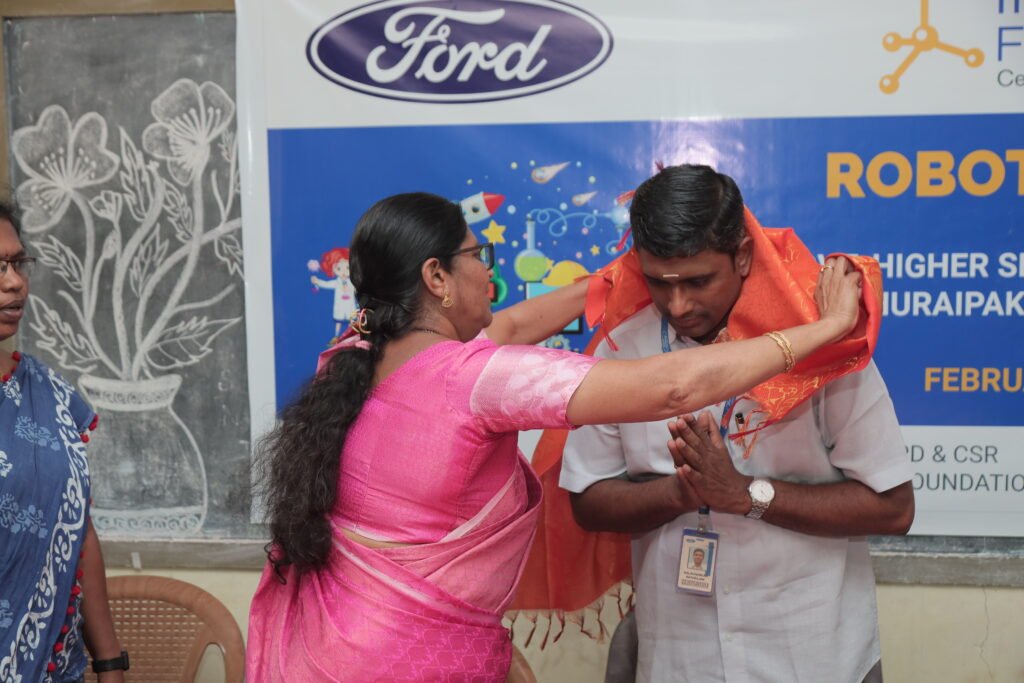
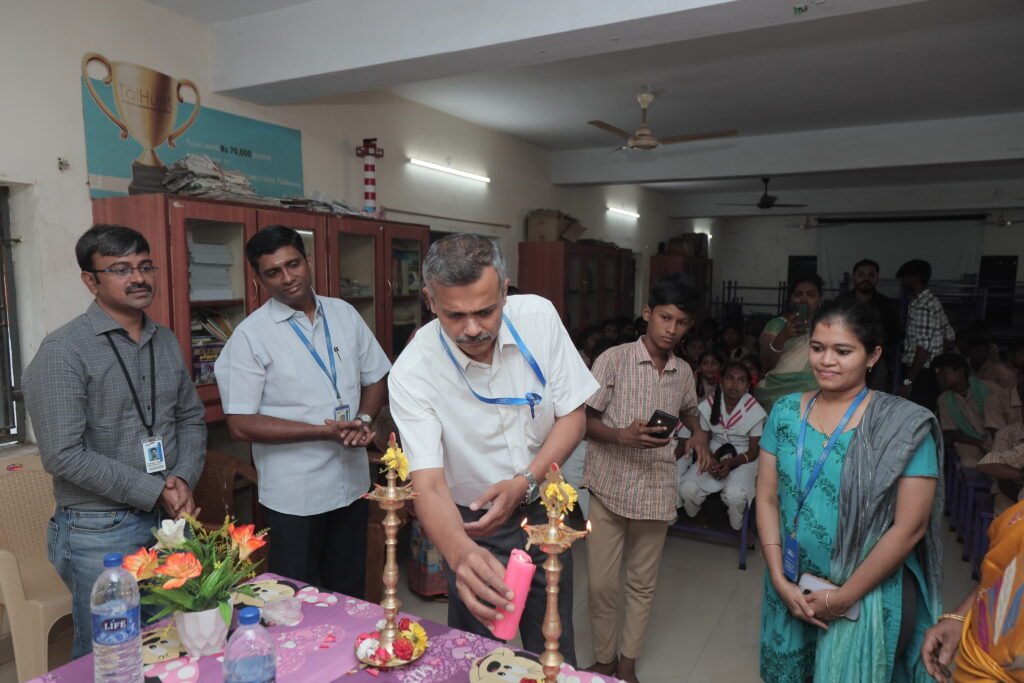
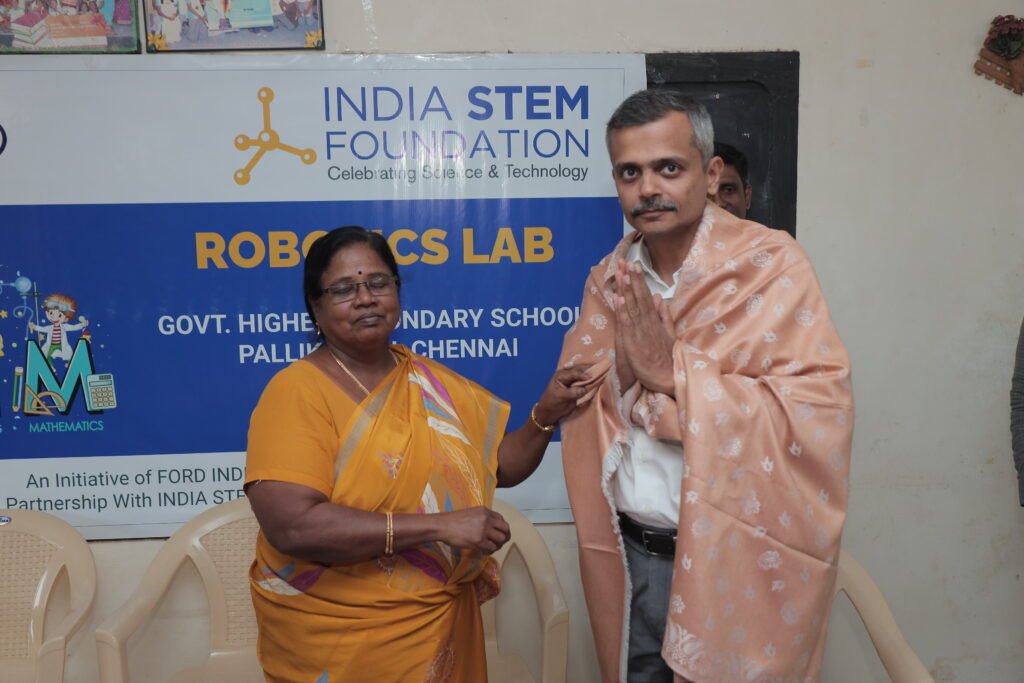
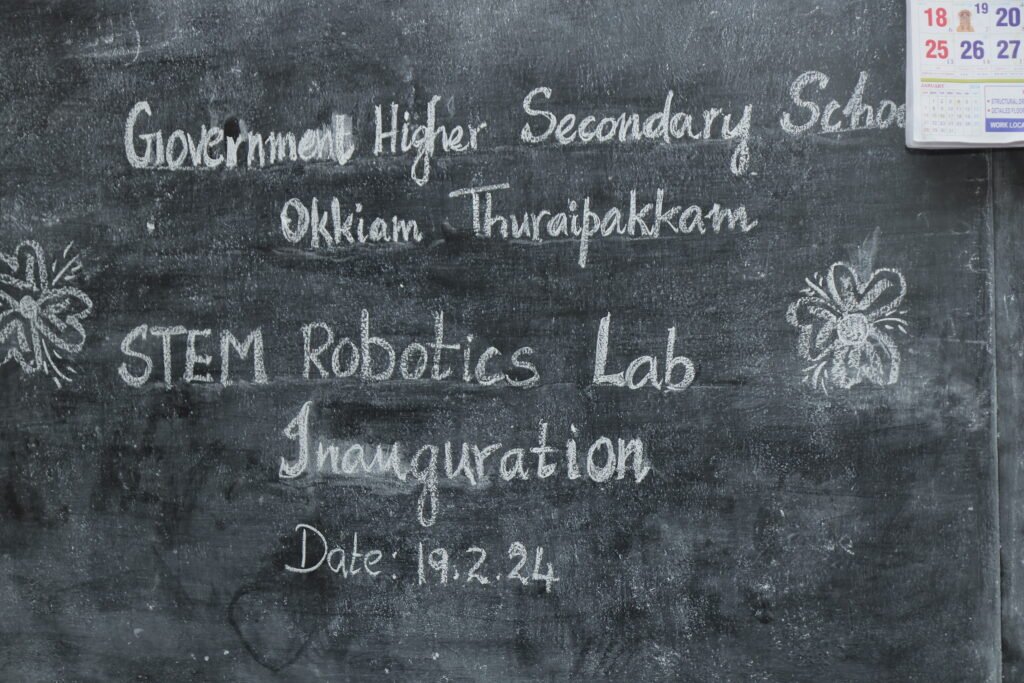
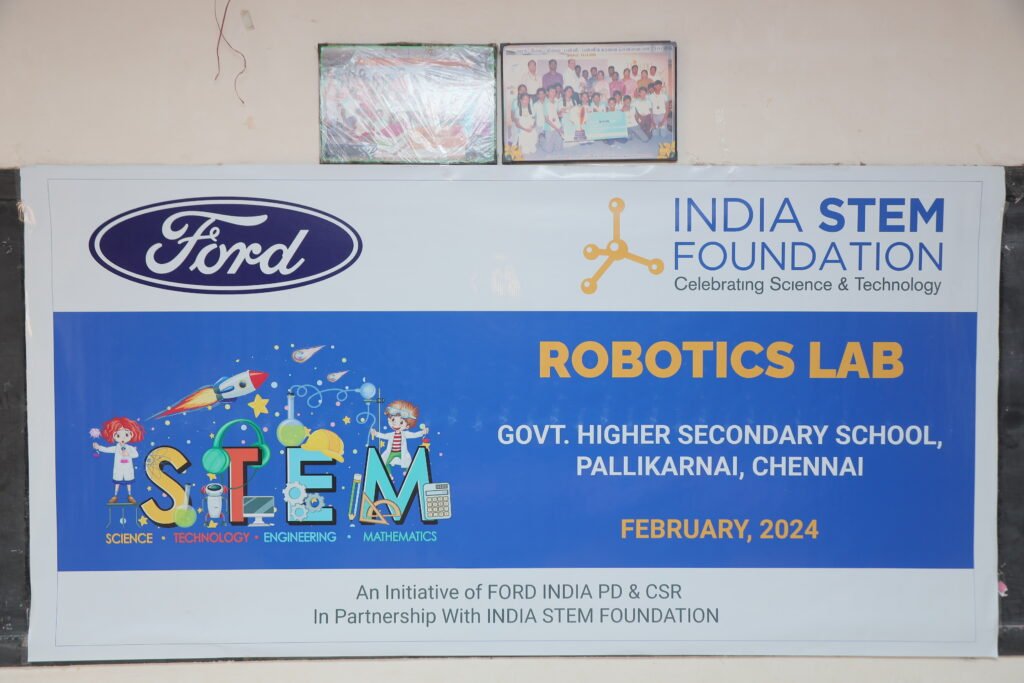
The two schools in Chennai where the RSK Labs were inaugurated are:
- Government Higher Secondary School – Thuraipakkam, Chennai
- Government Higher Secondary School – Pallikarnai, Chennai
Elements of a Robo Siksha Kendra
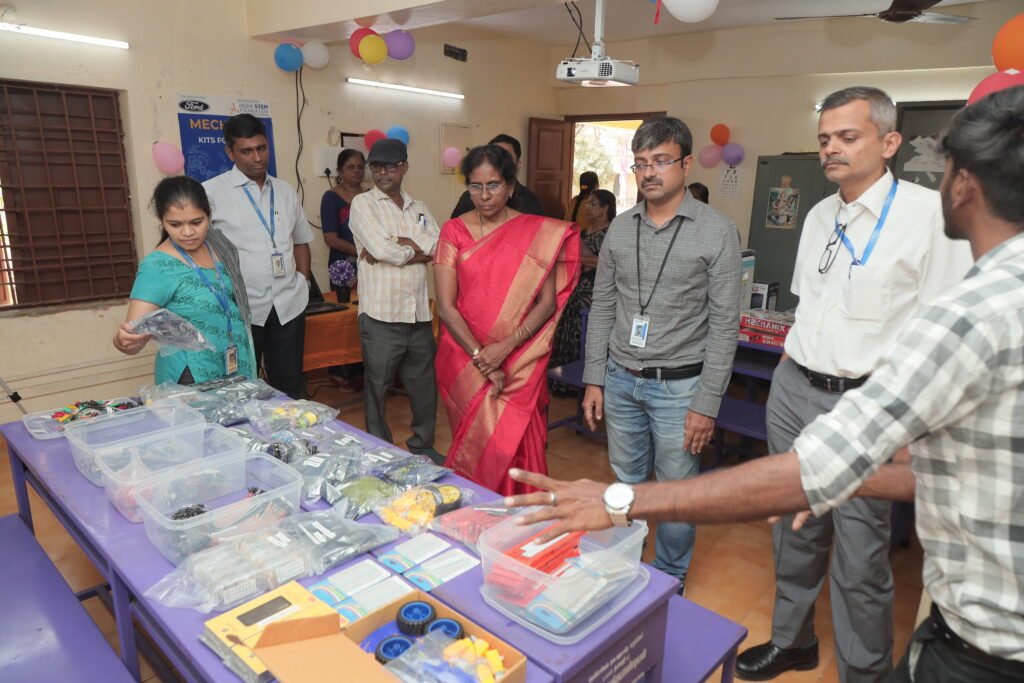
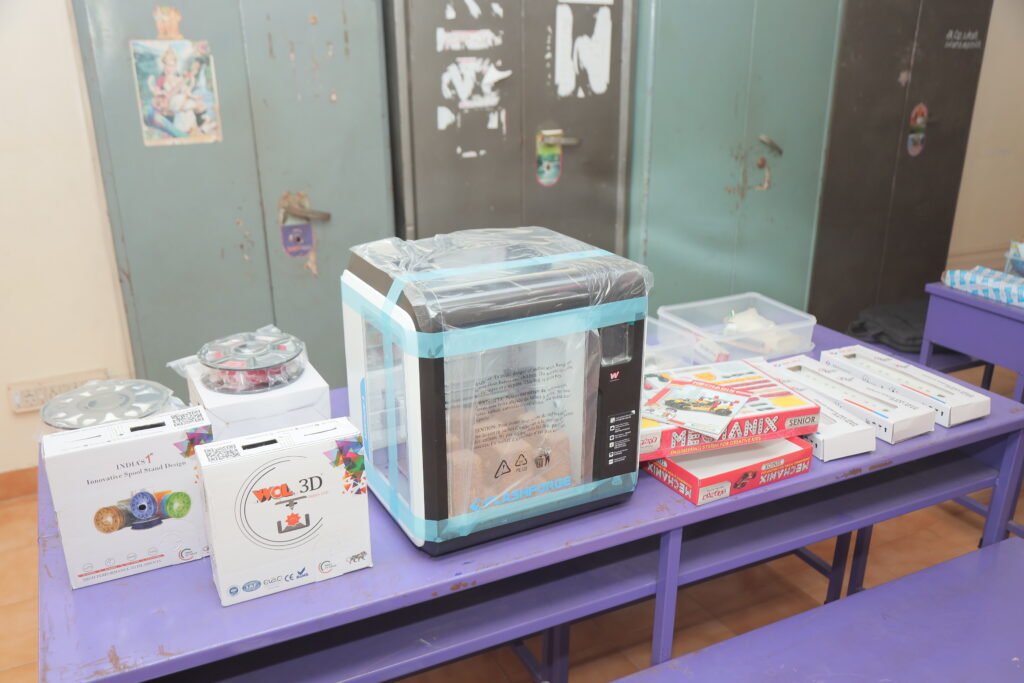
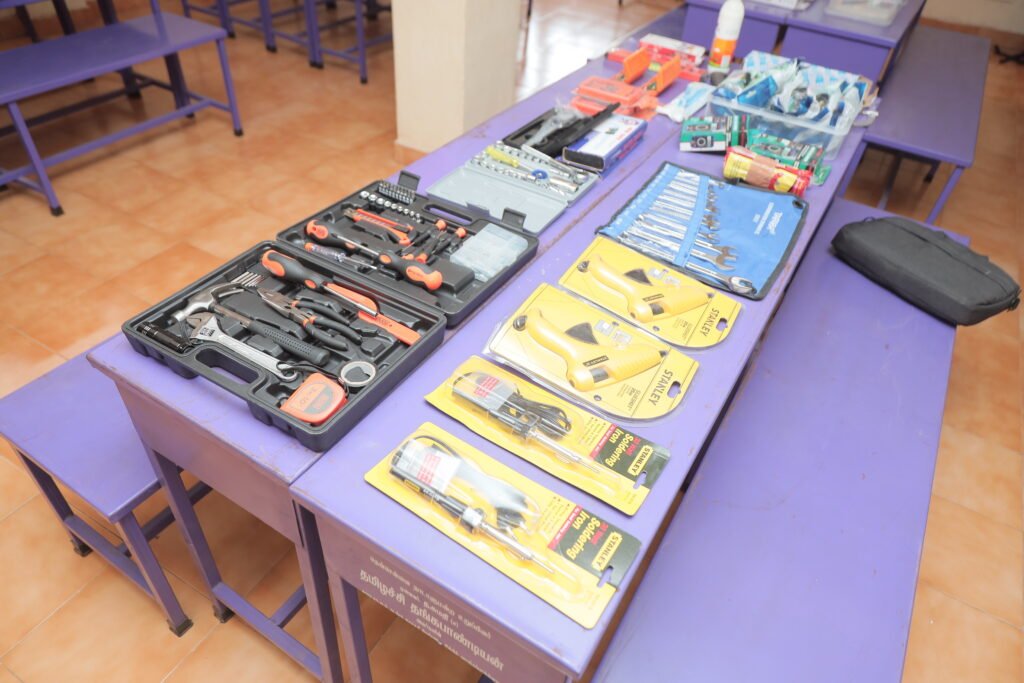
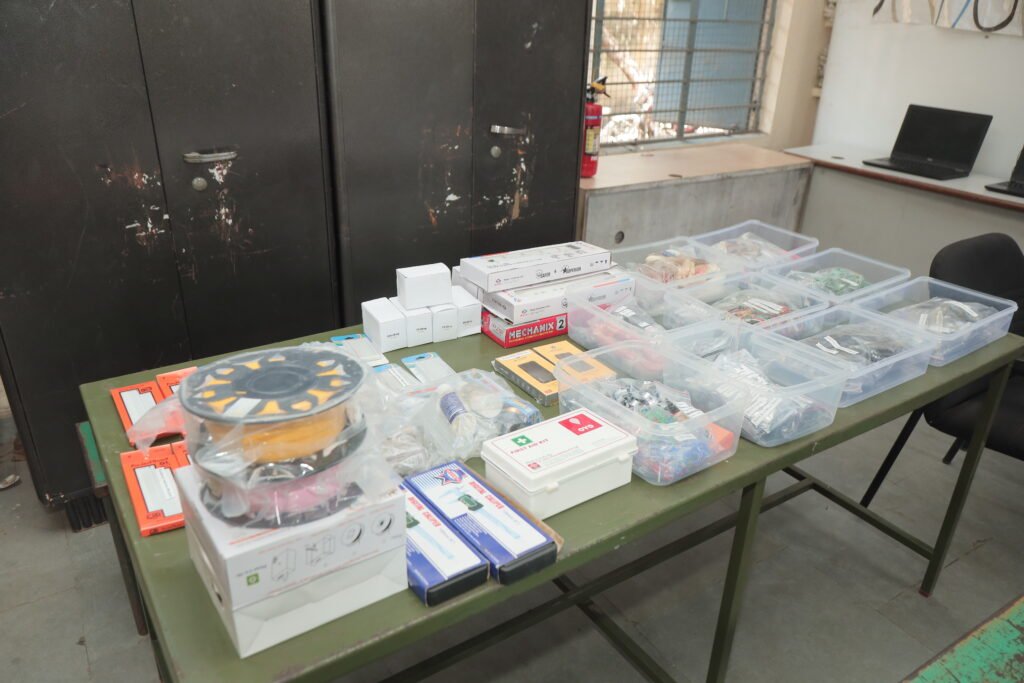
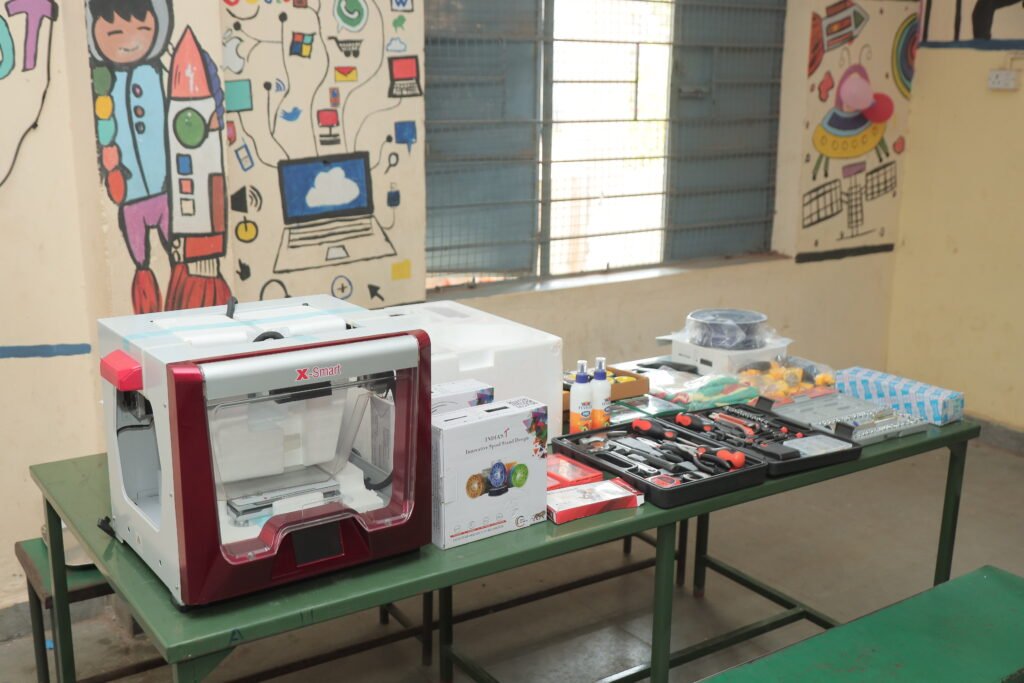
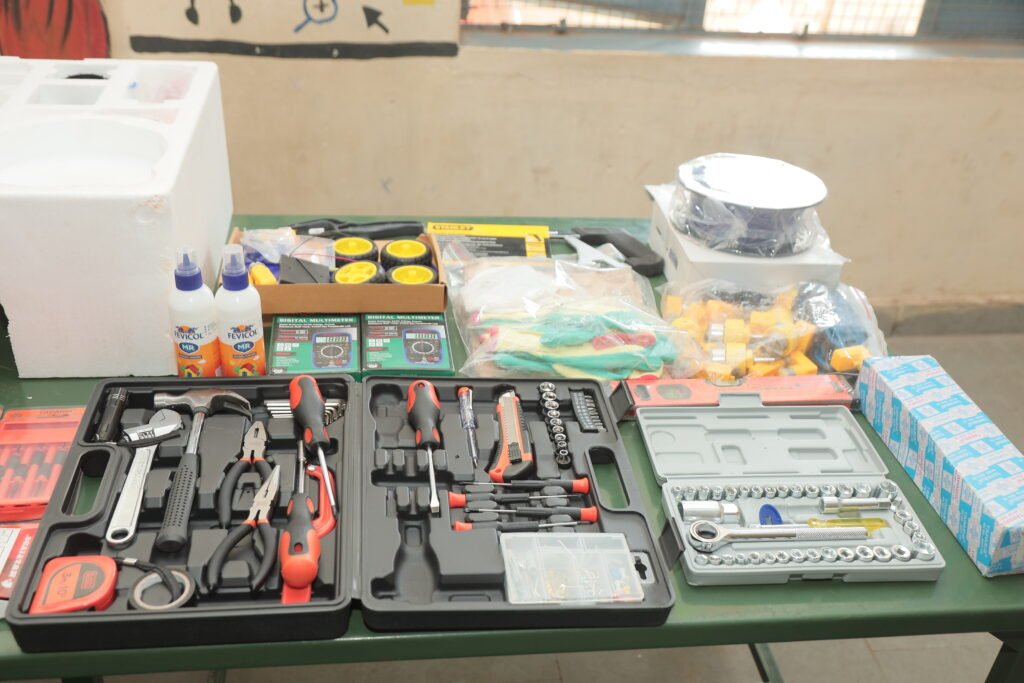
A STEM Tinkering Lab or a Robo Siksha Kendra is equipped with state-of-the-art tools and equipment that allow students to engage in hands-on learning experiences. These labs typically include robotics kits, 3D printers, electronic components, and computer programming software, enabling students to explore STEM concepts through practical experimentation and project-based learning.
Importance of Hands-On Learning
Hands-on learning is crucial for children as it fosters creativity, critical thinking, problem-solving skills, and teamwork. By engaging in hands-on activities, students gain a deeper understanding of STEM concepts and develop the skills needed to succeed in a technology-driven world. Hands-on learning is not only the future of education but also a pathway to unlocking the full potential of students.
Corporate Social Responsibility in STEM Education
It is essential for corporates to focus their CSR efforts on STEM education as it plays a vital role in building a skilled workforce and driving innovation. By investing in STEM initiatives, corporates contribute to the socio-economic development of communities and empower individuals to pursue careers in STEM fields, thus fueling economic growth and competitiveness.
India STEM Foundation
India STEM Foundation is a non-profit organization dedicated to promoting STEM education and innovation across India. Through various programs and initiatives, India STEM Foundation aims to inspire and empower students to pursue careers in STEM fields and become future leaders in technology and innovation.
Conclusion
The inauguration of the RSK Labs in Chennai, supported by Ford India, underscores the importance of STEM education in empowering students and driving societal progress. By providing students with access to state-of-the-art STEM Tinkering Labs and fostering a culture of hands-on learning, Ford India and other corporates are paving the way for a brighter future for the next generation of innovators and problem-solvers in India.
